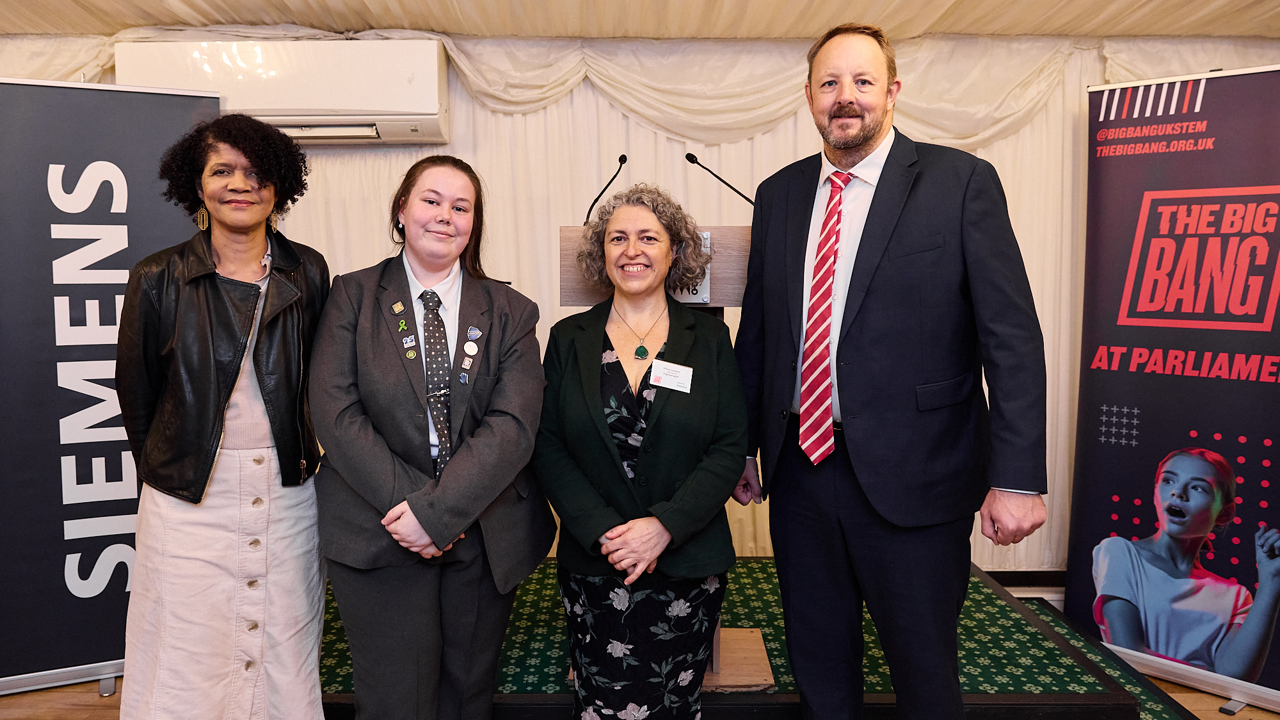Young people are better prepared for jobs as a result of careers education
Young people say they are now better prepared than ever before to move into jobs after school as a result of careers education, according to a new report.

Young people say they are now better prepared than ever before to move into jobs after school as a result of careers education, according to a new report from The Careers & Enterprise Company (CEC).
A survey of 35,000 young people shows their career readiness improves as they progress through school, rising from 45% when they start secondary school in Year 7 to 67% in Year 11 and 74% in Year 13.
The survey is one of the key sets of data analysed in the CEC’s new ‘Ready for the Future: A review of Careers Education in England 2021/22’ report which looks at the progress and impact of careers education over the last 12 months.
Positive impact of increased exposure to careers education
The longer schools have been in the careers system, the more breadth and depth of exposure students have to employers, which improves their ability to make informed choices about their future pathways. The report found that more than 4 in 5 schools (81%) in a careers hub since 2018 engage with at least 10 businesses, compared with 48% who are not in a careers hub.
Young people who face most barriers benefit more from careers education. The impact of a school reaching all 8 Gatsby Benchmarks can now be measured, and it shows that young people from a disadvantaged community who are not in employment, education or training (NEET) reduces by 20%. Such a reduction in NEET levels saves taxpayers £150m a year.
Analysis of more than 5 million careers interactions in schools also shows a clear relationship between high quality careers education and positive post-16 destinations – this effect is twice as strong for schools serving the most economically disadvantaged students.
Careers education is now becoming more embedded in day-to-day lessons as it moves into the mainstream of school and college life. This means how and what students learn is becoming more relevant to how its applied in the jobs they are interested in.
Key findings of the report
- awareness of apprenticeships doubles from 39% in Year 7 to 81% by Year 11
- apprenticeship awareness at 81% in Year 11 is now on a par with A levels 88%
- 60% of schools say students meet independent training providers, which is up from 44% in 2018/19
- 79% of Year 11 students know the skills employer’s need for the role they’re interested in
- 86% of Year 11 students have a plan for their next step
- Work experience has bounced back to pre-pandemic levels. Nearly 2 thirds of students (65%) in Year 13 have experiences of the workplace – a level last seen in 2018/19 and up from 47% during the pandemic.
- More than 4 in 5 employers (82%) say they are now running in-person workplace visits with 3 in 5 (61%) running 1 to 2 week in-person work placements.
- Inspiring young people about the breadth of careers
- There are early indications careers education is starting to steer young people towards choosing to pursue opportunities in areas of the economy and jobs where skills needs are acute.
Engineering is undoubtedly one of the top 4 sectors of choice, followed by healthcare, creative and media and construction which coincide with those with high reported vacancy rates and skills needs. This points to the potential for careers education to further smooth young people’s transition between education and employment and help ensure vacancies in sectors most in need of talent are filled fastest, leading to positive gains for the economy.
Baroness Nicky Morgan, Chair of CEC, commented: “As a result of well-structured careers programmes, young people are becoming more career ready. This is real grounds for optimism…Our focus is to build on this progress. To ensure all teachers benefit from careers awareness training and that young people can access high-quality regular experiences with business - further amplifying technical and vocation routes – so all our young people are ready for the future, through a system ready for the future too.”
Oli de Botton, Chief Executive of CEC, said: “A consensus is now emerging about what good careers provision looks like, backed by a growing body of evidence about what works…Learners access a rich and well-rounded education that sets them up for the future, employers build the talent pipelines they need and ultimately, with more young people on the right pathway for them – one where they can thrive – our economy becomes more productive.”
As a result of well-structured careers programmes, young people are becoming more career ready. This is real grounds for optimism…Our focus is to build on this progress.
— Baroness Nicky Morgan, Chair of CEC












